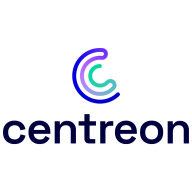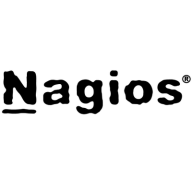

Centron and Nagios Core are key players in the network monitoring space. Centron appears to have the upper hand due to its extensive features and customization options.
Features: Centron excels in customization, flexibility, and scalability, offering powerful data visualization with comprehensive dashboards. It supports third-party integrations and diverse monitoring needs from a single dashboard. On the other hand, Nagios Core is known for its simplicity and reliability, with vast extensibility through custom checks and plug-in creation. It is a favored choice for those seeking an open-source solution with excellent community support.
Room for Improvement: Centron could improve by enhancing widget flexibility, 3D map visualization, and dynamic API functionality. It also requires advancements in network discovery capabilities. Conversely, Nagios Core's interface could benefit from a more modern, intuitive configuration via graphical interfaces, with enhancements in scalability and reporting capabilities to stay competitive.
Ease of Deployment and Customer Service: Both Centron and Nagios Core offer robust deployment options. Centron users prefer its simpler, more unified implementation but note a lack of 24/7 support, crucial for global operations. Nagios Core excels in its open-source nature, thriving on community-driven support but requires users with technical expertise to maximize its potential.
Pricing and ROI: Centron is perceived as cost-effective, delivering substantial ROI by reducing resolution times and consolidating solutions, offering essential functionalities in its free version, with advanced features under paid licensing. Nagios Core provides a zero-cost option that supports extensive customization, but with potential indirect costs associated with customization and integration, offering long-term savings for users with expertise.


Centreon is an all-in-one IT monitoring solution that is a network, system, applicative supervision, and monitoring tool. It is free and open source, and one of the most flexible and powerful monitoring softwares on the market.
Centreon Features
Centreon has many valuable key features. Some of the most useful ones include:
Centreon Benefits
There are several benefits to implementing Centreon. Some of the biggest advantages the solution offers include:
Reviews from Real Users
Below are some reviews and helpful feedback written by Centreon users.
PeerSpot user Thor M., CEO at a tech services company, says, "The single-pane view provides us a view of all of our network infrastructure, and it is one of the most important tools that we use to see the status of our customers' networks. It provides a nice benefit when it comes to helping align IT operations with business objectives. The top-down views, dashboards, and business context reporting are things that are nice to have because you want to be able to show the customer that everything is working, that problems have been addressed, and that you're providing value.”
Thomas C., Managing Director, Canada at Eva, comments, “The most valuable feature of the solution is the flexibility, the ability to integrate all kinds of equipment. As long as something has an IP you can monitor it. What we try to achieve all the time is not only saying a company's system is available, but to give additional data on the performance of the equipment. So the flexibility is what matters the most to us, where we can script everything. Centreon has a lot of Plugin Packs, meaning they support, by design, a lot of devices. And on top of that, we have the ability to add our own scripts and do whatever we want and display the data as we want in the central dashboards.”
Marcilio L., President at ITS Solucoes, expresses, "The dashboards are valuable because they ease troubleshooting and viewing. It becomes easier to locate the source of a problem... The dashboards make it easier to communicate with our clients. They don't want to see the alert console, they want to see a beautiful dashboard representing their network and their business and to watch it in case something is wrong in their environment."
Florent Q., Network Engineer at a computer software company, mentions, "The most valuable feature is that we can manually configure everything we need. After it comes inside the interface of Centreon, you can display it. Because the interface is quite user-friendly, you can manually configure the configuration very deeply, which is very pleasant and useful because you can monitor and see everything on your service list, dashboard, or MAP. The most useful feature for me is that you can create your own plugin and monitoring query."
This is IT infrastructure monitoring's industry-standard, open-source core. Free without professional support services.
We monitor all Network Monitoring Software reviews to prevent fraudulent reviews and keep review quality high. We do not post reviews by company employees or direct competitors. We validate each review for authenticity via cross-reference with LinkedIn, and personal follow-up with the reviewer when necessary.